The best thing that could be said about Tucker Carlson’s love letter to Vladimir Putin on his show Tuesday is that it didn’t sound any better in the original Russian. It sounded much more like a work of translation than anything original, because we’ve been hearing it all from Russian state TV for years.
Many of those classic lies and themes were presented. Carlson claimed Russia’s border vulnerability was genuine, that NATO exists solely “to torment Vladimir Putin” who “has no intention of invading Western Europe,” that it is the U.S. hyping the threat of war, and more. He indulged in pathetic worship of Putin’s manufactured machismo at the same time he presented Biden as weak and not in charge. As I tweeted in reply to Mike Pence in 2016, Putin is a strong leader the way arsenic is a strong drink.
Even after the Trump years, when sometimes you weren’t sure if you were watching Fox News or Russia Today, it’s still a shock to hear American commentators of influence recite talking points straight out of the Kremlin’s playbook. Carlson did his best to twist them into MAGA-friendly soundbites, but it’s an impossible task. If there’s anything Putin wants for America, it’s for it never to be great again.
The topic at hand was Ukraine, back in the news not for impeachable reasons but because Russia once again has been building up a massive military force on its neighbor’s border—a border it already crossed by force in 2014. It’s been bizarre to hear the Biden White House talk about what may happen “if Russia invades Ukraine” when that invasion happened seven years ago and the war is still ongoing, with thousands of casualties.
Contrary to Tucker Carlson’s pleas, Putin’s assault on Ukraine has nothing to do with NATO or any threats real or imagined against Russian borders or national security, about which Putin cares nothing anyway. Like every other decision Putin makes from morning to night, it was about keeping his grip on total power in Russia.
Attacking Ukraine and seizing Crimea in 2014 served the dual purpose of distracting Russians from their many woes and disrupting Ukraine’s unwelcome move toward democracy and Europe—and away from Putin and his kleptocracy model. Ukrainians had just kicked out Viktor Yanukovych, Putin’s corrupt lackey, in a popular uprising against his attempt to block Ukrainian integration with Europe, doubtless at his boss in Moscow’s direction.
(Another relevant note on Putin’s timing is that the 2014 Olympic Winter Games had just finished in Sochi, Russia. A global sporting spectacle with the dictator playing the preening host to the world has been known to inspire a sense of invincibility at least since 1936. Biden’s diplomatic boycott of China’s upcoming Winter Games isn’t as good as moving them out of the CCP’s clutches, but it’s a worthwhile measure.)
A thriving democratic Ukraine would be a terrible model for Russians, in Putin’s view. Like every dictator, he’s having trouble explaining why everything in his country is such a mess after over 20 years in unchallenged power. Enemies are needed, ones big enough to be credible, and that means Europe, NATO, and, especially, the United States. Ukraine is hardly enough of a believable threat. Most Russians consider Ukrainians to be the same people, a feeling that was largely reciprocated until Putin declared his undeclared war.
And while far too many Russians support Putin’s brazen theft of Crimea, few have any appetite for continued hostilities despite years of Russian propaganda portraying Ukraine as simultaneously overrun by fascists and Jews. (Nobody ever said that misinformation had to make any sense to be effective.) And so, NATO was called once more into rhetorical service as the bogeyman, despite its unfortunate disinterest in Ukraine. It’s no coincidence that Putin invaded Georgia and Ukraine, the two ex-Soviet states that moved away from Moscow’s orbit without being let into NATO like the three Baltic nations were in 2004.
Even though it was demoted to Zoom instead of the pomp of their June summit in Geneva, the Biden-Putin call over Russia’s military build-up against Ukraine deserves attention. First off, what was it for? As with the earlier Biden-Putin summit in Geneva, there was little explanation from the Biden White House as to why it would reward a hostile mafia boss like Putin—a “killer” in Biden’s own words—with a one-on-one with the president of the United States. The call itself was a tangible achievement for Putin, well worth shuffling some troops and tanks around. It again elevated him as an equal, a playmaker on the international stage instead of the pariah he should be for his criminal acts and belligerence.
Still, if Biden managed to communicate that there are credible threats to the finances of Putin and his cronies, it wasn’t worthless. It would have been even better had amendments promising such sanctions been included as planned in the National Defense Authorization Act. The new NDAA, stripped of these measures and others aimed at the Kremlin, was announced soon after the Biden-Putin call. One hopes that the whiff of a potential Ukrainian quid pro quo at this timing is just my natural Russian paranoia. But after Biden already waived sanctions against Putin’s beloved Nord Stream 2 pipeline, a little paranoia is warranted.
Putin deserves no say whatsoever in the decisions of the sovereign nation of Ukraine—not about NATO or anything else. Ukraine deserves U.S. and NATO support because democracy needs their support. As I wrote in the days of the invasion in 2014, Ukraine is on the front line of a war that the U.S. and the rest of the free world doesn’t want to admit is happening. Hiding behind America First won’t save you, not for long. It never has. There is also self-interest, if not immediate national security interests. More and healthier democracies means a safer and more stable world, something of real value to the most globalized of all nations.
If the rule of international law is to matter at all, Putin’s mafia gang should be sanctioned into oblivion until every inch of Ukrainian territory is returned. Kick his oligarchs and their families out of their posh properties in the free world, where they enjoy luxuries that few Russians can dream of—like freedom of speech. Seize their looted assets, treat them like the criminals they are. All this leverage is available, but the will to use it has been absent.
This makes Carlson’s blather about being too tough on Putin even more laughable. Putin is a hostile actor, an enemy who has repeatedly attacked American interests abroad and in the homeland. Russian hackers and disinformation campaigns target everything from racial strife to vaccine effectiveness to US elections. Why would a flag-wrapped nationalist like Tucker Carlson take Putin’s side? Because Putin took Trump’s? Because he’s admiring of Putin’s authoritarian powers?
Or perhaps it’s that Trumpists, much like Putin, don’t see democracy as anything but trouble despite their claims of being freedom-loving patriots. Praising a dictator is to praise dictatorship, and what could be more un-American than that?
Garry Kasparov is the chairman of the Renew Democracy Initiative.
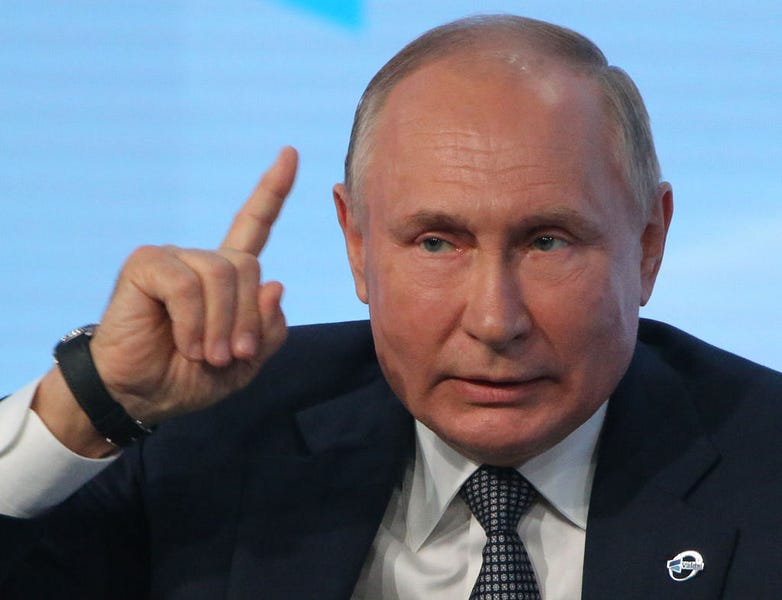
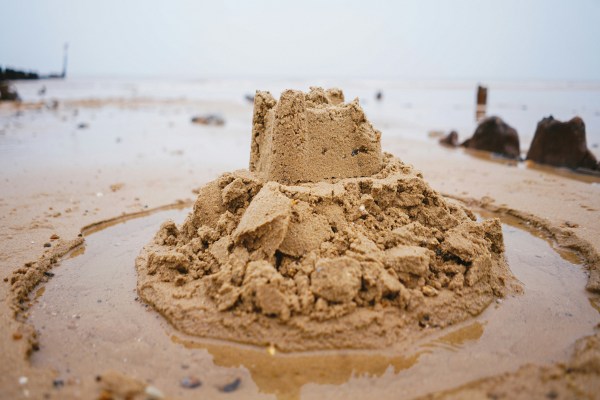
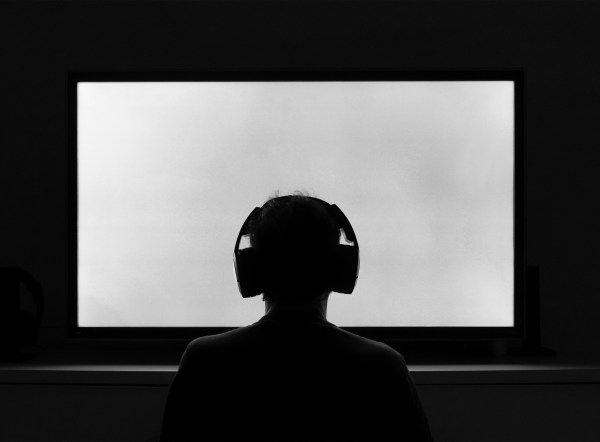
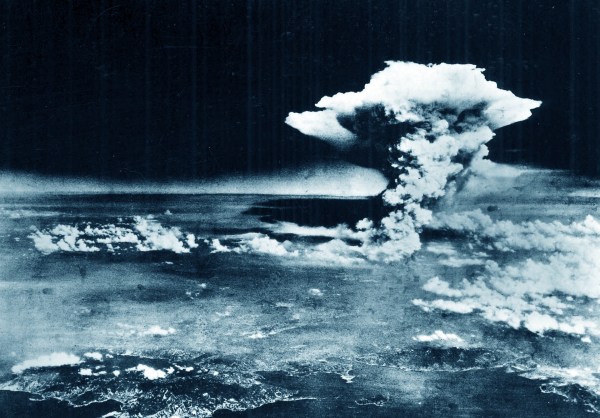
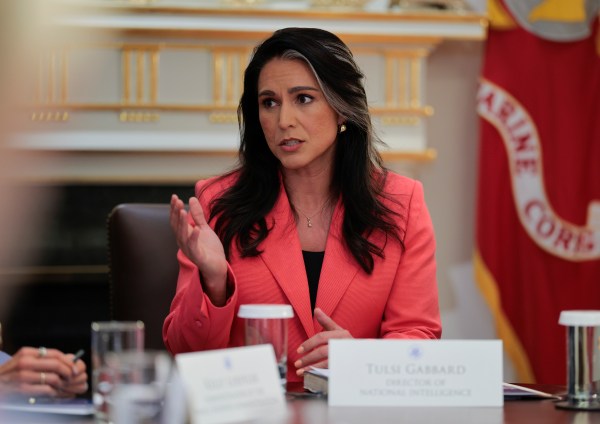
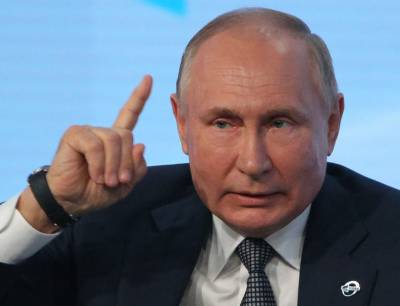
Please note that we at The Dispatch hold ourselves, our work, and our commenters to a higher standard than other places on the internet. We welcome comments that foster genuine debate or discussion—including comments critical of us or our work—but responses that include ad hominem attacks on fellow Dispatch members or are intended to stoke fear and anger may be moderated.
With your membership, you only have the ability to comment on The Morning Dispatch articles. Consider upgrading to join the conversation everywhere.